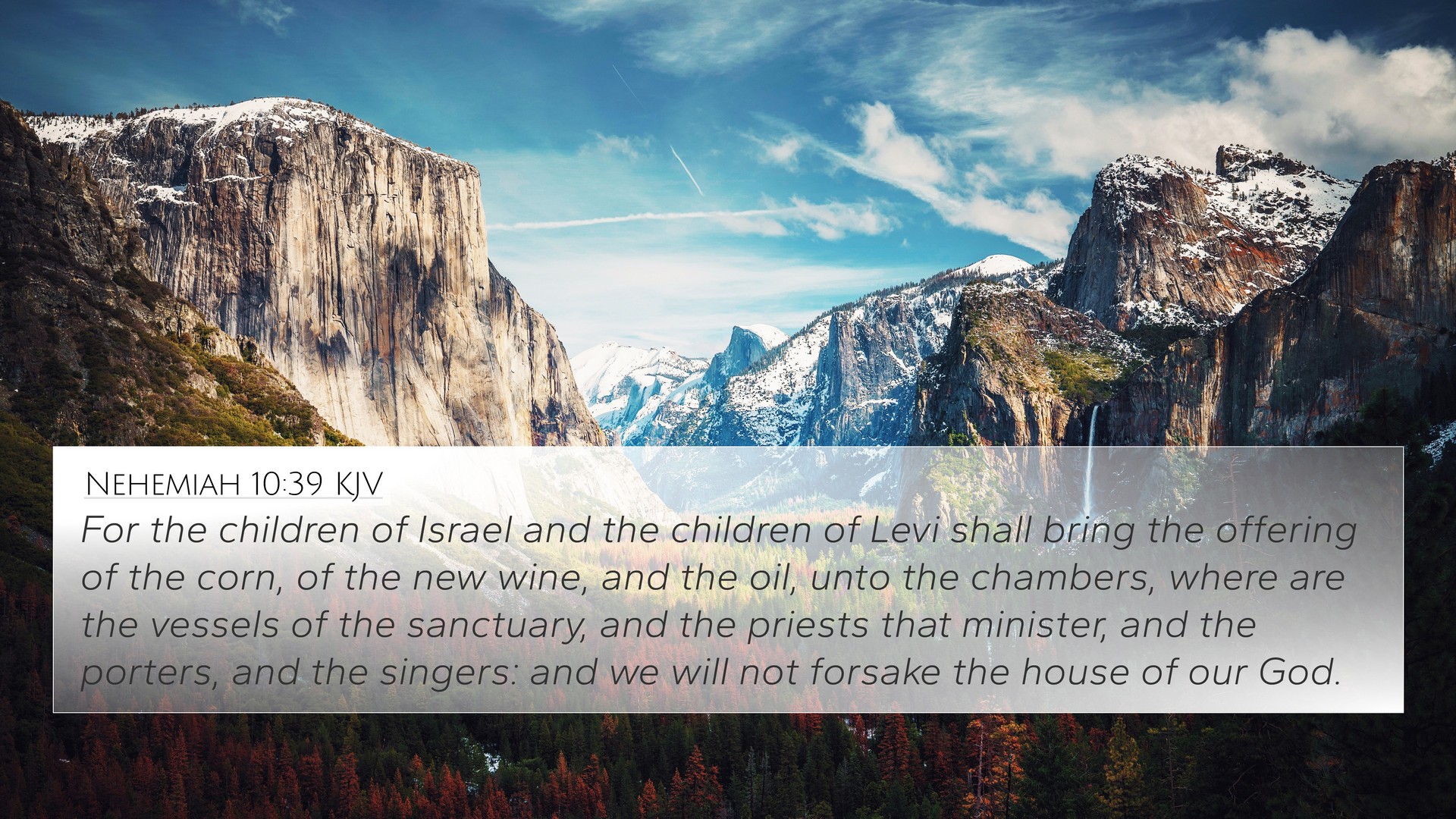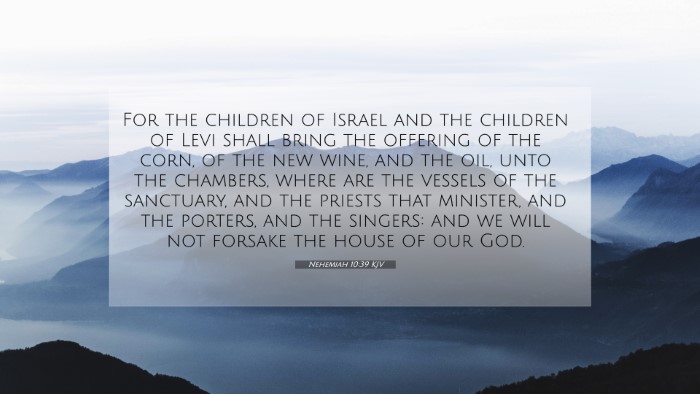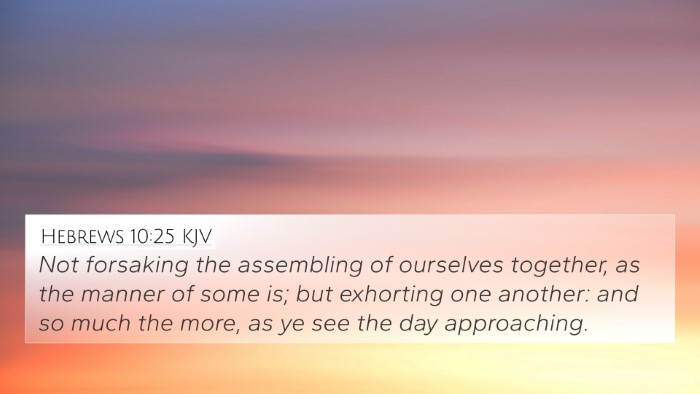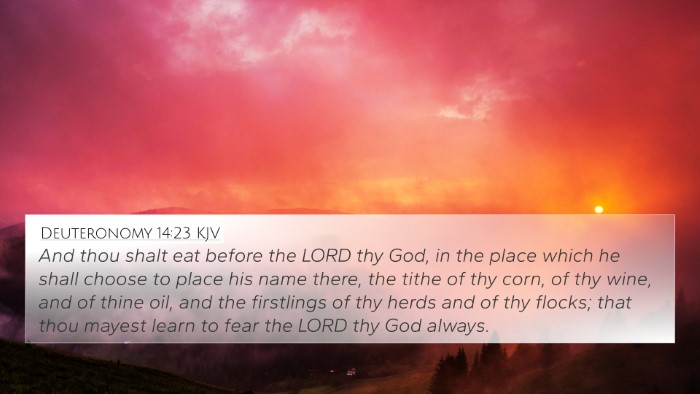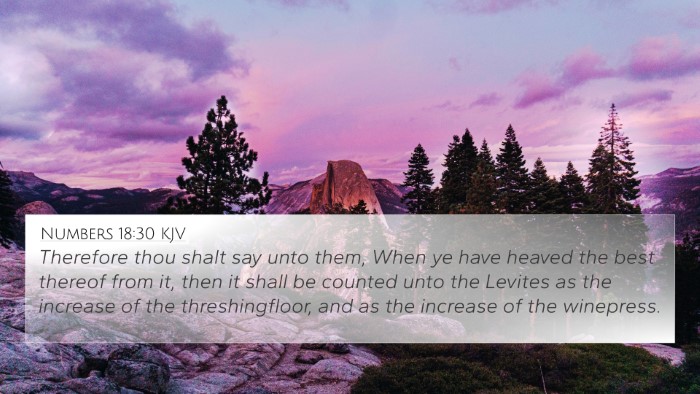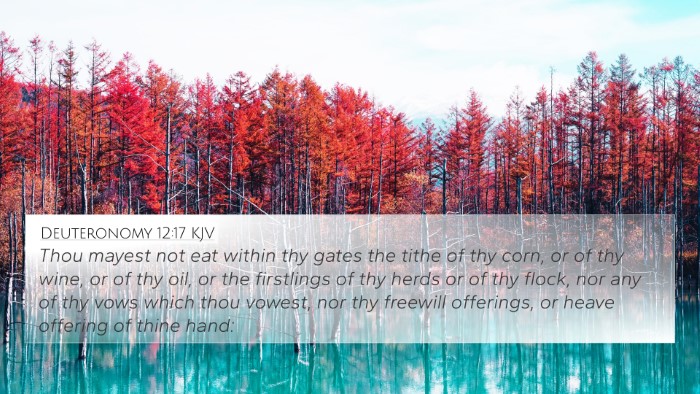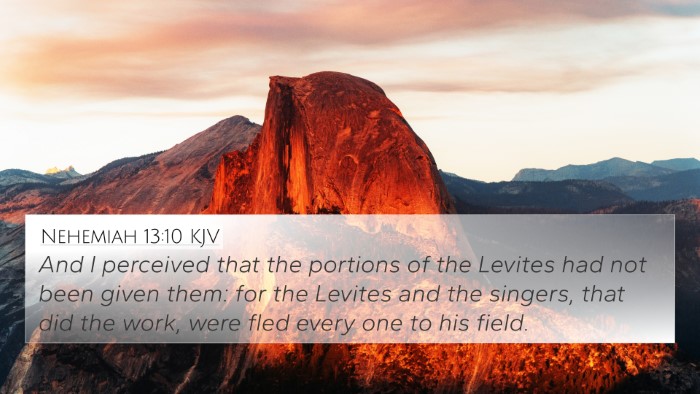Understanding Nehemiah 10:39
Nehemiah 10:39 states, "For the children of Israel and the children of Levi shall bring the offering of the corn, of the new wine, and the oil, unto the chambers, where are the vessels of the sanctuary, and the priests that minister, and the porters, and the singers: and we will not forsake the house of our God."
Summary of Meaning
This verse encapsulates the commitment of the Israelites to support the Levitical priesthood and maintain the temple service. The offerings mentioned—corn, new wine, and oil—are part of the provisions for worship and service in the temple, symbolizing the people's dedication to God and their gratitude for His blessings. It emphasizes the importance of community involvement in worship, as the collective bringing of offerings reflects unity and
reverence towards the house of God.
Insights from Public Domain Commentaries
Matthew Henry's Commentary
Matthew Henry notes that this pledge is a vital part of the covenant renewal process initiated by the people of Israel. He underscores their return to God and the importance of their contributions to the temple service, which serves as a model for communal worship and support among believers. Henry emphasizes that neglecting the spiritual duties and offerings to God can lead to a decline in spiritual fervor and community morale.
Albert Barnes' Notes on the Bible
Albert Barnes highlights the practical nature of the pledges made by the Israelites. He explains that the offerings consisted of agricultural products essential for sustaining the priests and the temple. Barnes illustrates this verse as a testament to how the ancient Israelites organized their worship and monetary contributions, which can serve as a guide for contemporary church practices. He stresses that such offerings are a direct response to God's faithfulness and provision.
Adam Clarke's Commentary
Adam Clarke interprets this pledge as a reflection of the heart's devotion to God. He accentuates the need for regular contributions to maintain the sanctity of worship. Clarke points out that the term "the house of our God" signifies a sacred space, and the Israelites’ commitment underscores the significance of worshiping God collectively and providing for those engaged in ministerial roles. This reverence and commitment can invigorate the faith community and enhance spiritual practices.
Cross-References
- Exodus 23:19 - "The first of the firstfruits of thy land thou shalt bring into the house of the LORD thy God."
- Malachi 3:10 - "Bring ye all the tithes into the storehouse, that there may be meat in mine house..."
- Nehemiah 12:44 - "And at that time were some appointed over the chambers for the treasures, for the offerings..."
- Deuteronomy 14:22 - "Thou shalt truly tithe all the increase of thy seed..."
- 1 Chronicles 29:3 - "Moreover, because I have set my affection to the house of my God..."
- Hebrews 10:25 - "Not forsaking the assembling of ourselves together..."
- Acts 2:44-45 - "And all that believed were together, and had all things common; And sold their possessions and goods..."
- 2 Corinthians 9:7 - "Every man according as he purposeth in his heart, so let him give..."
- Matthew 6:33 - "But seek ye first the kingdom of God, and his righteousness..."
- Romans 12:1 - "I beseech you therefore, brethren, by the mercies of God, that ye present your bodies a living sacrifice..."
Thematic Connections and Conclusion
The themes of stewardship, community worship, and sacrificial giving are central to Nehemiah 10:39. This commitment aligns with broader scriptural themes concerning the body of Christ and collective worship.
The connections between Bible verses and the reinforcement of being faithful stewards throughout the Old and New Testaments highlight the enduring principles of devotion and support for God's house and His ministering servants.
In summary, Nehemiah 10:39 provides profound insights into communal worship, the importance of offerings, and the sacred responsibility toward God's house. The cross-references illustrate how interwoven the Bible is, revealing the comprehensive nature of God's covenant with His people and how these principles transcend time.
